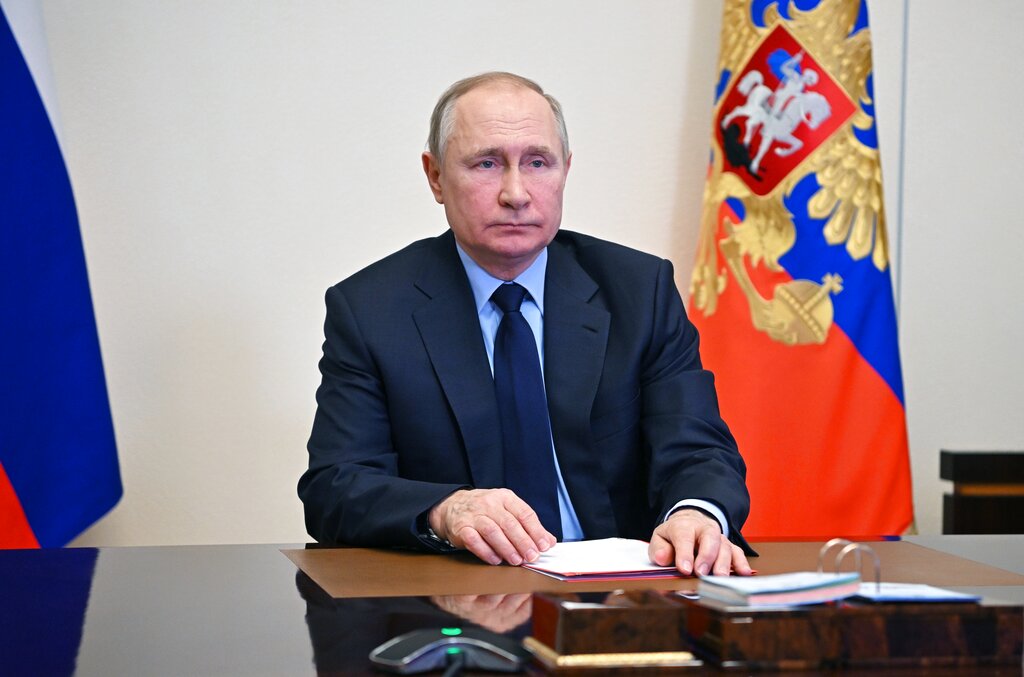The evidence to suggest an invasion of Ukraine by the Russians is imminent is three-fold and can be found through the actions of Russia’s military, its diplomacy and via intelligence obtained by the West.
The military signs have been made clear by Russia through the increase in tensions on Ukraine’s northern and southern borders, and the announcement of the blockade of Ukrainian ports on the Black and Azov Seas.
In addition to this, there was the Russian Security Council meeting on Friday during which the Kremlin revealed that Putin spoke about priorities in the “post-Soviet space.”
There are also other signs coming from Russia. Russian Foreign Minister Sergey Lavrov has canceled his visit to Israel next week. None of the Russian VIPs will also take part in the upcoming Munich Security Conference, at which Russian officials liked to appear often and threaten the West. Perhaps in a few days’ time, threats won’t be necessary because everyone will see photos of Ukraine being bombarded?
A bombardment of Ukraine was mentioned by the White House as the most likely version of the start of a Russian invasion. Moreover, the White House warned that this attack could begin at any moment, also in the upcoming days during the 2022 Winter Olympics in Beijing, which was previously out of the question.
Officially, the Americans had assured that it was uncertain whether Putin had made the decision to invade. Unofficially, in serious media outlets, there have been reports of the opposite.
Evidence that the U.S. and a plethora of Western states are taking the matter seriously includes the decision to deploy an additional 3,000 U.S. soldiers to Poland. Further proof is the sudden meeting between the leaders of the United States, Canada, the European Union, NATO, Germany, the United Kingdom, Italy, and also the presidents of Poland and Romania.
Another bad sign is the order for American and other citizens to immediately leave Ukraine. Israel, which is renowned for its intelligence services and doing its utmost to care for its citizens, has also issued such an order.
Yet, what are the signs that a war is not imminent?
Putin’s upcoming series of meetings might suggest that the invasion will not take place soon. On Saturday, the Russian president had met with Joe Biden and Emmanuel Macron — both talks had been announced suddenly. On Tuesday, German Chancellor Olaf Scholz will visit the Kremlin.
Will we be able to expect an invasion after Tuesday, or will it be sudden and unavoidable? Much of this depends on whether Putin believes that he can achieve his aims without having to carry out a large-scale war. So, whether he will be convinced that it is possible to fulfill the Minsk Agreements in a version beneficial to Russia: the incapacitation of Ukraine and depriving it forever of the possibility of joining NATO and deepening its ties with the West.
Crushing Ukraine’s NATO dreams is the path Macron likely took during his hours-long talks with Putin a few days ago. Germany is also connected to the Minsk Agreements. The question is whether the U.S. will want to also pressure Ukraine to give up its ambitions of joining the West.
Ukrainians would pay for stopping a war in this manner, at least for now.






